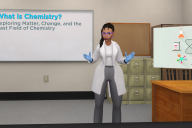You have /5 articles left.
Sign up for a free account or log in.
- Harvard University has reached a settlement in a lawsuit involving the institution's providing accurate closed captioning on course videos and audio. The Daily Hampshire Gazette reported that the suit, filed by the National Association of the Deaf, alleged that Harvard's website and online courses were not as inclusive of deaf and hard-of-hearing individuals as they should be. The organization said that the closed captions were missing or inaccurately transcribed, and that the institution violated the Americans With Disabilities Act and the Rehabilitation Act. The settlement stipulates that Harvard must provide captions for content existing up to January 2019 and offer captions for events that are streamed live online. The settlement only applies to content the university creates itself.
- The federal government last month released first-of-its-kind data on the first-year salaries earned by graduates of thousands of academic programs, allowing consumers (or more likely policy makers) to match that information with the debt accumulated by participants in the programs. The data have many imperfections and limitations, as critics were quick to point out, but they also allow at least a crude analysis of the value of many if not most academic programs, potentially highlighting those programs that produce better and worse financial outcomes.
- Joshua Kim explores what higher education can learn from Netflix's rise, and what might be the academy's "Blockbuster moment."

Want articles like this sent straight to your inbox?
Subscribe to a Newsletter







